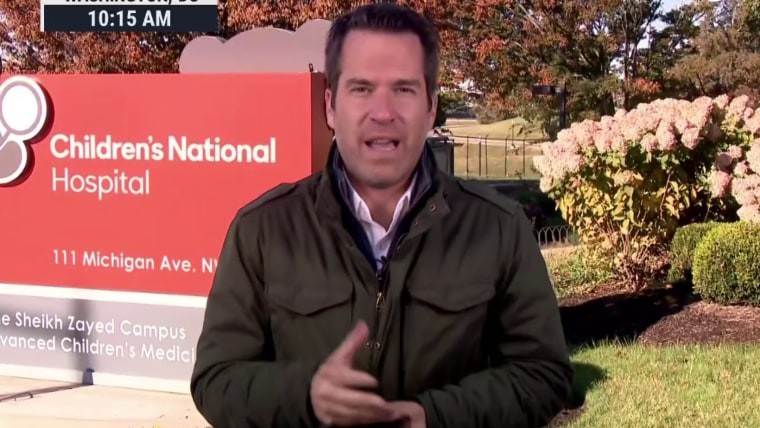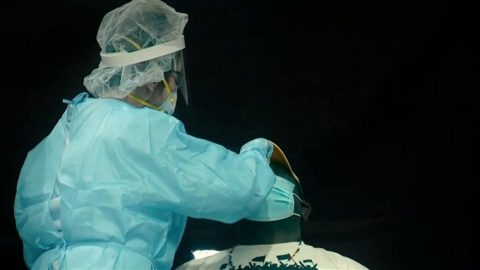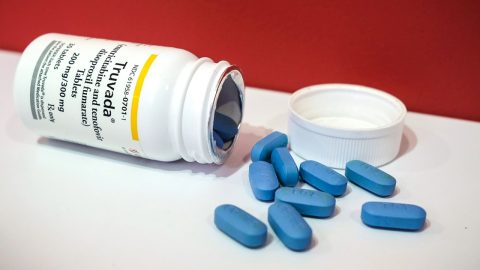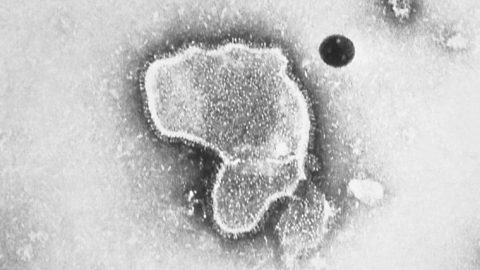The director of the Centers for Disease Control and Prevention signed off Tuesday evening on a recommendation that Pfizer-BioNTech’s lower-dose Covid vaccine be available to children 5 to 11. As a result, more than 28 million children are now able to receive their vaccines.
The CDC director, Dr. Rochelle Walensky, signed off on the unanimous recommendation of the agency’s advisory committee within hours of the vote earlier Tuesday.
Full coverage of the Covid-19 pandemic
Members of the advisory committee were highly supportive of the vaccine.
“This is a huge step forward for children and parents and I endorse this recommendation,” said committee member Dr. Beth Bell, a clinical professor in the department of global health at the University of Washington.
“The bottom line is, the data showed here today that the vaccine is safe,” said committee member Dr. Oliver Brooks, the chief medical officer at Watts HealthCare Corporation in Los Angeles. “Children are dying, and we can reduce hospitalizations, cases and deaths with this safe and effective vaccine that will benefit the community.”
Another committee member, Dr. Matthew Daley, a senior investigator at Kaiser Permanente Colorado, acknowledged that some parents have concerns about vaccinations.
“We know that you only want what’s best for your child, and it’s understandable that you have questions and concerns,” Daley said. “This may be particularly true given what seems to be a deliberate campaign of disinformation out there. And so I would just encourage you to talk to your child’s pediatrician or family physician.”
Dr. Richard Besser, a pediatrician and president of the Robert Wood Johnson Foundation, said, “I truly believe that having a safe and effective vaccine for children is important in bringing this pandemic finally to a close.”
Why should kids get the Covid vaccine?
Though most children do not get nearly as sick from Covid as adults, they are still affected by the disease. Since the beginning of the pandemic, there have been more than 1.9 million Covid cases, more than 8,300 hospitalizations and 94 deaths due to Covid among children ages 5 to 11 in the United States, Dr. Jefferson Jones, a medical officer with the CDC, said Tuesday.
But “Covid-19 is now vaccine-preventable,” Dr. Sara Oliver, an epidemic intelligence service officer at the CDC, said. “So we now have the ability to prevent the burden of disease, future hospitalizations and deaths from Covid-19 in children 5 to 11 years of age.”
Oliver noted that the hospitalization rate seen in children with Covid is comparable to what’s seen during an average flu season — but was still happening despite the intense mitigation measures in place over the course of the pandemic. Flu hospitalizations during the pandemic, on the other hand, were virtually nonexistent.
Covid-related illnesses are also a threat to children. MIS-C, or multisystem inflammatory syndrome in children, is most common in kids 5 to 11, Jones said. MIS-C is a dangerous inflammatory condition that can occur several weeks after infection. Children are also at risk for long Covid.
There are also harms that extend beyond the physical illness, including missing school and extracurricular activities.
CDC models project that vaccinating children ages 5 to 11 could help accelerate the decline in cases currently seen in the U.S., Oliver said.
She also noted that children should get the vaccine even if they were previously infected, because it’s unclear how long that infection-induced protection lasts.
Pfizer reported that its vaccine was nearly 91 percent effective against symptomatic illness in its clinical trial of 5- to 11-year-olds.
Pfizer’s vaccine for 5- to 11-year-olds comes in a smaller dose, at 10 micrograms, compared to the 30 micrograms given to those ages 12 and up. Like the vaccine for older age groups, its given in two doses, three weeks apart. Vials of the pediatric vaccine have an orange cap and label.
What about myocarditis?
About half of U.S. parents say they intend to get their child vaccinated, Oliver said. Thirty-seven percent of parents reported “side effects” as a reason for not wanting the vaccine for their kids, with allergic reactions, fever and myocarditis among the top concerns.
Dr. Kate Woodworth, a general pediatrician at the CDC, said during a presentation that common side effects included arm pain and swelling at the injection site, as well as fever, fatigue and achiness. Woodworth added that side effects in kids may be less common than those in teens and adults.
Myocarditis, an inflammation of the heart muscle, is rare. It’s most commonly reported in boys and young men under 30 after their second dose of an mRNA vaccine.
Dr. Matthew Oster, a pediatric cardiologist at Children’s Healthcare of Atlanta, said during a presentation to the committee on Tuesday that he believed children ages 5 to 11 are less likely to develop myocarditis from the Covid vaccine compared with teens and young adults.
Oster also said he believed the benefits of vaccination outweigh the risk of myocarditis.
A total of 877 cases of vaccine-induced myocarditis have been confirmed by the CDC in males under 30 to date. There were nine deaths, but investigators found that none of the deaths so far were caused by vaccine-induced myocarditis, Oster said. Investigations for two of the deaths are ongoing.
Download the NBC News app for full coverage of the Covid-19 pandemic
Oster noted that vaccine-induced myocarditis differs from so-called classic myocarditis, which can be caused by a variety of factors including viral and bacterial infections. Patients with vaccine-induced myocarditis tend to return to normal heart function more quickly, he said.
Three months later, 50 percent of myocarditis patients contacted by the CDC said they had no symptoms. What’s more, 91 percent of cardiologists treating myocarditis patients said they were either fully recovered or probably recovered, Oster said.
More than 192 million people in the U.S. have been fully vaccinated, according to CDC data, which includes nearly 68 percent of all people over age 12.
The Food and Drug Administration granted emergency use authorization for the lower-dose Pfizer vaccine for children last Friday. Millions of doses have already been shipped to providers across the country, with more shipments to follow in the coming days.
Monday, White House Covid response coordinator Jeffrey Zients said at a media briefing that the U.S. already has enough doses for everyone in the 5-to-11 age group to be fully vaccinated.
Follow NBC HEALTH on Twitter & Facebook.











Recent Comments